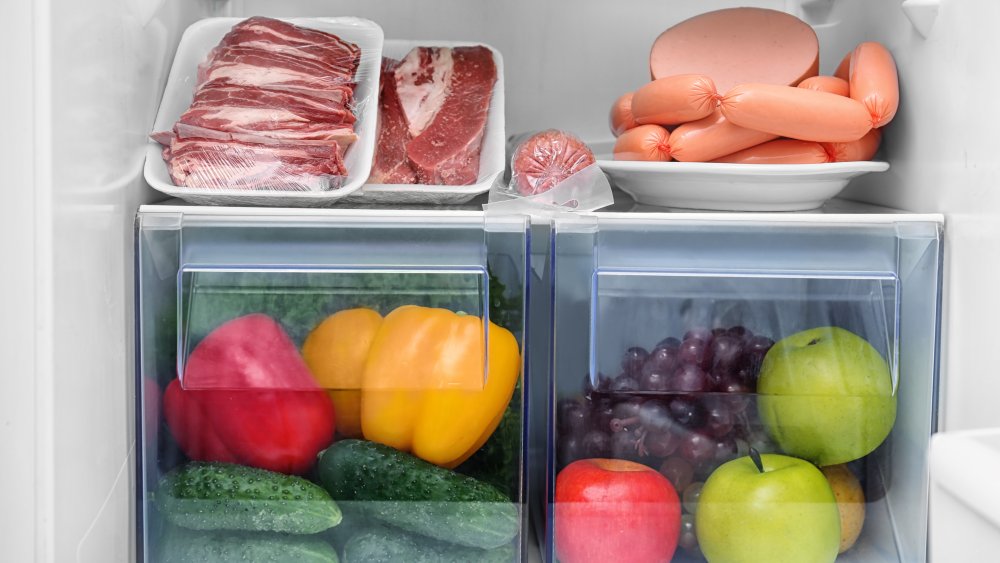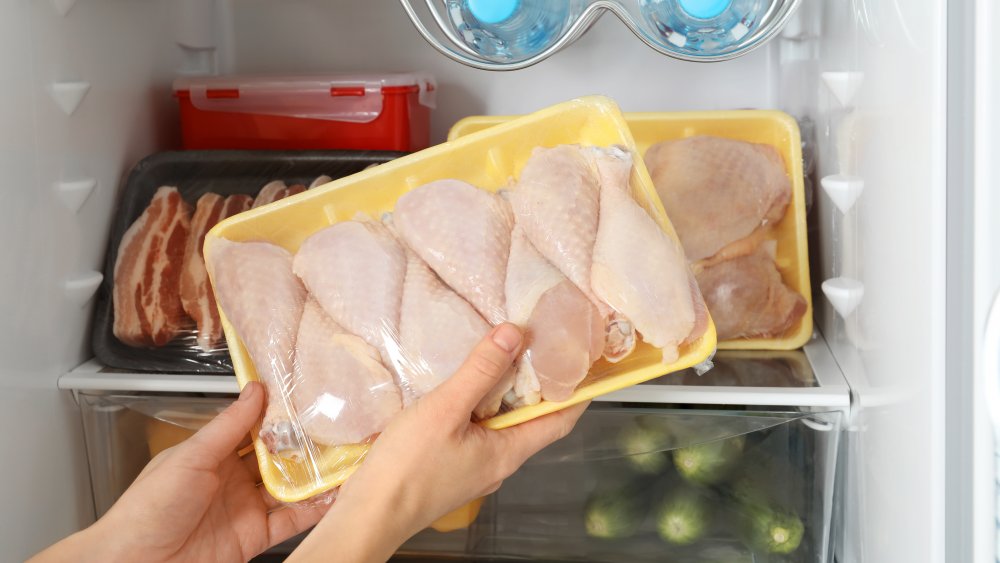Never Store Raw Meat On The Refrigerator's Top Shelf. Here's Why
Organizing a refrigerator can be tough. And for many of us, there is no rhyme nor reason to where we stack various foods. There are weeks when we over-shop and have so many groceries perilously stacked on top of each other that we actually "lose" food we bought, only to find our strawberries and blueberries weeks later covered with white and fuzzy mold. It happens.
But did you know there are actually some refrigerator storage rules we are supposed to follow (and not just so it looks like organization guru Marie Kondo worked her happy magic in our fridge)?
If you count yourself among those who store raw meat on any shelf other than the bottom shelf, you're committing a refrigerator storage faux pas you'll want to correct ASAP. The natural juices of raw meat start to settle once you stack them in the refrigerator. And chances are, they're bound to leak out and drip onto the shelves and other food — making a mess, but also potentially causing a health hazard, per the Daily Mail.
Store meat in leak-proof containers on the lower shelves of your fridge
Food poisoning is real. The Centers for Disease Control and Prevention says in any given year, an estimated 48 million people in the United States will come down with food poisoning related to foodborne diseases. This results in sickness, hospitalization, and in some cases, it can even be fatal.
The Daily Mail explains that when raw meat juices drip onto other foods, like salad, fruits, or vegetables, it contaminates them with bacteria. While the bacteria don't survive when you cook your chicken, the same doesn't happen with foods eaten raw like the carrots and celery your kids might munch on after school.
"It is the USDA recommendation that meat and eggs are to be stored in the refrigerator set at 40 ℉ or below to prevent foodborne illness bacteria from multiplying," Lynn Williams, Customer Support & Communications Program Specialist, Food Safety and Inspection Service at the USDA, tells Mashed. "Keep them in their packaging/cartons and place in the coldest part of the refrigerator, not the door. The coldest part of the refrigerator tends to be the bottom shelf towards the back of the compartment."
Storing raw meat on the lowest shelf in your refrigerator in plastic bags will help catch or contain such leaks, per the Food Network. Adding in this layer of protection will help keep your refrigerator clean and mitigate the potential health hazard of contaminating your other food.

